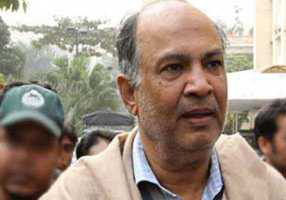
Oct 1, 2013 | News
The ICJ denounces the death penalty handed down today by the International Crimes Tribunal (ICT) to Salauddin Quader Chowdhury, a member of the Bangladesh Nationalist Party, the main opposition party.
If carried out, the sentence would violate Bangladesh’s international law obligations to protect the right to life and freedom from cruel, inhuman, or degrading punishment, the ICJ states.
The International Crimes Tribunal convicted Chowdhury (photo) on nine of 23 charges, including murder and genocide, and sentenced him to death.
“The Bangladesh Tribunal is one of very few transitional justice mechanisms that have imposed the death penalty,” said Sam Zarifi, ICJ’s Asia-Pacific Director. “It is unfortunate that Bangladesh seeks to punish human rights violations by committing rights violations itself.”
The ICJ considers the death penalty in all cases to constitute a violation of the right to life and the right not to be subjected to cruel, inhuman or degrading punishment.
This is the seventh verdict delivered by the International Crimes Tribunal. Death sentences have been handed out in all but one case.
”Bangladeshi law as well as international human rights standards require that death penalty cases receive a fair and thorough review, so it is crucial that appellate review of these cases proceed properly, without undue political pressure or a timeline established by impending elections in or before January 2014,” Zarifi said.
“Those responsible for the horrific war crimes and crimes against humanity during Bangladesh’s war of liberation in 1971 should be brought to justice in processes that are fair, and seen to be fair, instead of being subjected to vengeance,” he added.
Contact
Sam Zarifi, ICJ Asia-Pacific Regional Director, (Bangkok), t:+66 807819002; email: sam.zarifi(a)icj.org
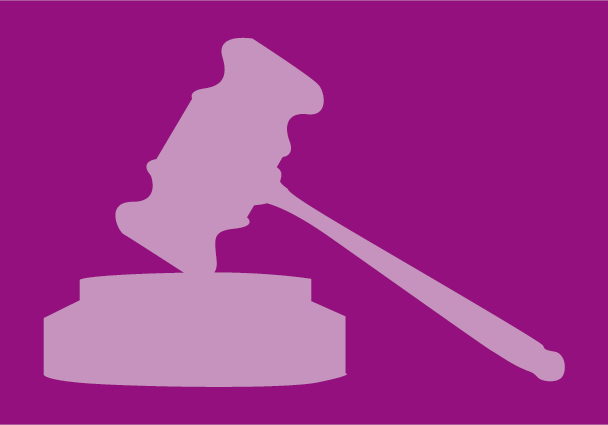
Sep 30, 2013 | News
Last week the ICJ concluded a series of five workshops organized in collaboration with the National Human Rights Commission of the Federation of Bar Associations of Venezuela and states bar associations.
The workshops, that were held in five cities of Venezuela in the course of 2013, provided participants with a space for free reflection and debate on issues of judicial independence and the functioning of rule of law institutions.
The themes discussed in the workshops included human rights in legal education; the role of bar associations in promoting and strengthening an independent, competent and integral legal profession; human rights litigations; professional, civil and criminal responsibility of lawyers; and the role of the Supreme Court and the Office of Public Prosecution in a democratic society.
Participants to the workshops included representatives of bar associations, former Supreme Court justices and senior judges, practicing lawyers and members of Venezuelan civil society.
***
SPANISH TEXT:
La CIJ concluye serie de 5 talleres sobre independencia judicial en Venezuela
La semana pasada la Comisión Internacional de Juristas concluyó una serie de cinco talleres organizados en colaboración con la Comisión Nacional de Derechos Humanos de la Federación de Colegios de Abogados de Venezuela y los Colegios de Abogados de varios Estados en Venezuela.
Los talleres, que tuvieron lugar en cinco ciudades de Venezuela en el transcurso de 2013, ofrecieron a los participantes un espacio de reflexión libre y de debate sobre temas relativos a independencia judicial y el funcionamiento de las instituciones del Estado de derecho.
Los temas tratados en los talleres incluyeron la importancia de la formación en derechos humanos de los abogados; el papel de los Colegios de Abogados en la promoción y fortalecimiento de una profesión independiente, competente e integral; los litigios en materia de derechos humanos; la responsabilidad profesional, civil y penal de los abogados; y el papel del Tribunal Supremo de Justicia y del Ministerio Público en una sociedad democrática.
Los participantes en los talleres incluyeron a representantes del gremio, ex jueces del Tribunal Supremo y jueces de tribunales superiores, abogados en ejercicio y miembros de la sociedad civil venezolana.
Venezuela-CIJ Programa Seminario Barquisimeto-agenda-2013-spa (full text in pdf)
Venezuela-CIJ Programa Seminario Coro-agenda-2013-spa (full text in pdf)
Venezuela-CIJ Programa Seminario Puerto Ayacucho-agenda-2013-spa (full text in pdf)
Venezuela-CIJ Programa Seminario San Cristobal-agenda-2013-spa (full text in pdf)
Venezuela-CIJ Seminario Caracas-Programa-agenda-2013-spa (full text in pdf)
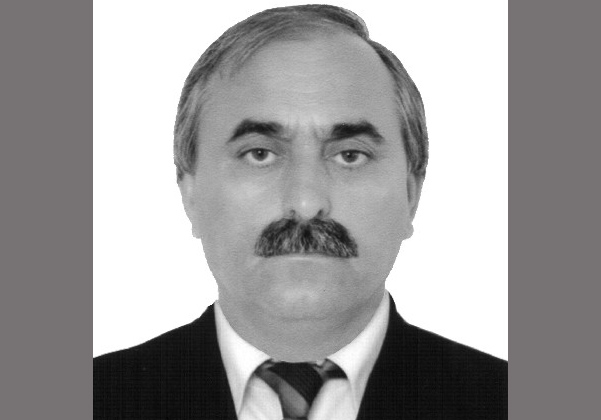
Sep 26, 2013 | News
The ICJ today expressed grave concern over the shooting of a Supreme Court judge of Dagestan and his son.
The ICJ calls on the federal and local authorities to ensure prompt, independent, impartial and thorough investigation of the shooting of Judge Mukhtar Shapiyev (photo) and his son.
Those reasonably suspected of responsibility for this crime should be identified and brought to justice in fair and transparent proceedings, where the rights of all the parties, including the victims and the accused are respected.
The ICJ recalls that Mukhtar Shapiyev is the third judge to be killed in Dagestan this year.
On 15 January, Magomed Magomedov, a Supreme Court judge of Dagestan, was shot and died as a result of the attack and, on 9 March, federal judge Akhmed Radzhabov, was shot to death near his house.
“When judges’ security is not guaranteed, and when they face a real and constant risk to their lives, the justice system and the very rule of law are undermined,” Temur Shakirov, Legal Adviser of the ICJ Europe Programme, said. “The UN Basic Principles on the Independence of the Judiciary clarify that it is the obligation of the State to ensure that those who are entrusted with the power to take judicial decisions are effectively protected.”
Reports indicate that Mukhtar Shapiyev and his son, Kamil Shapiyev, were shot at by at least two persons near their home in the capital Makhachkala at about 20:45 on Wednesday 25 September. Both victims later died in hospital.
Judge Shapiyev previously worked as the Prosecutor of one of the districts in Dagestan. In January 2012, he was appointed as a Supreme Court judge of Dagestan and worked in the collegium on civil cases.
Urgent measures, which the ICJ calls for to guarantee that the security of judges in Dagestan is effectively protected, include ensuring effective security against attempts on their lives and lives of their family members.
CONTACTS
Róisín Pillay, Director, ICJ Europe Programme, roisin.pillay(a)icj.org
Temur Shakirov, Legal Adviser, ICJ Europe Programme, temur.shakirov(a)icj.org
Russia-Judge killed in Dagestan-news-web story-2013-rus (full text in pdf)
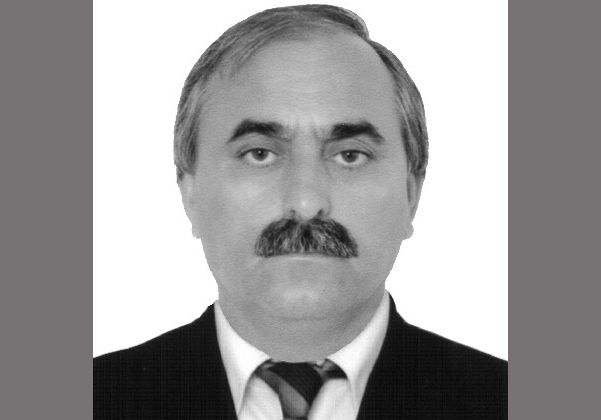
Sep 26, 2013 | Новости, Статьи
Международная комиссия юристов (МКЮ) выразила сегодня серьезную озабоченность относительно расстрела судьи Верховного суда Дагестана и его сына.
МКЮ призывает федеральные и местные власти обеспечить быстрое, независимое, беспристрастное и тщательное расследование убийства.
Лица, обоснованно подозреваемые в совершении этого преступления, должны быть выявлены и привлечены к ответственности в рамках справедливого и прозрачного процесса, где соблюдаются права всех сторон, в том числе потерпевших и обвиняемых.
МКЮ напоминает, что Мухтар Шапиев является третьим по счету судьей, убитым в Дагестане в этом году.
15 января Магомед Магомедов, судья Верховного суда Дагестана , был ранен, а затем скончался в результате нападения, а 9 марта федеральный судья Ахмед Раджабов был застрелен недалеко от своего дома .
“В отсутствии гарантий безопасности судей, когда последние сталкиваются с реальным и постоянным риском для жизни, подрывается система правосудия, равно как и верховенство закона”, – заявил Тимур Шакиров, правовой советник программы МКЮ по Европе. “Основные принципы ООН, касающиеся независимости судебных органов, закрепляют, что обязанностью государства является обеспечение того, чтобы лица , которым вверено право принимать судебные решения, были эффективно защищены”.
Согласно полученной информации, Мухтар Шапиев и его сын Камиль Шапиев были расстреляны по крайней мере двумя лицами возле своего дома в Махачкале около 20:45 в среду, 25 сентября. Оба пострадавших от нападения позже скончались в больнице.
Судья Шапиев ранее работал прокурором одного из районов в Дагестане. В январе 2012 года он был назначен судьей Верховного суда Дагестана и работал в коллегии Суда по гражданским делам.
Неотложные меры, к принятию которых призывает МКЮ с тем, чтобы эффективно гарантировать безопасности судей в Дагестане, включают обеспечение действенной защиты от покушений на их жизнь и жизнь членов их семей.
Контакты:
Роушин Пиллей, директор Региональной программы МКЮ по Европе, roisin.pillay(a)icj.org
Тимур Шакиров, правовой советник Региональной программы МКЮ по Европе, temur.shakirov(a)icj.org
Russia-Judge killed in Dagestan-news-web story-2013-rus (полный текст на русском, PDF)
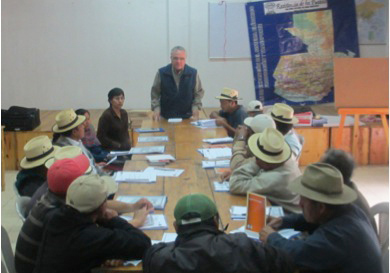
Sep 26, 2013 | Artículos, Noticias
La oficina de la CIJ en Centroamérica realizó una visita a Nebaj, Cunen y Sacapulas, municipios del departamento de Quiché, con el objeto de implementar un taller en cada municipio.
Los talleres tienen el objetivo de entregar los resultados de la investigación sobre la situación registral de los ejidos de Nebaj, Chajul, Cotzal, Cunen y Sacapulas, que realizara a solicitud de diferentes comunidades de dichos municipios.
La CIJ pudo constatar que estas comunidades siguen estando seriamente afectadas por la pobreza y extrema pobreza en la que viven.
Las violaciones al derecho a la alimentación, a la vivienda, a la salud, a la educación y a otros derechos colectivos les siguen causando serios daños y alcanzar su respeto sigue siendo una tarea pendiente, a pesar de los diferentes compromisos de Estado establecidos en los acuerdos de paz.
En los diferentes talleres realizados, las comunidades identificaron las principales acciones públicas que los han afectado en los últimos años.
Además, plantearon un nuevo problema relacionado con el intento de remedir las áreas protegidas que se han creado para la protección de los recursos naturales y del medio ambiente.
Los talleres también permitieron a las comunidades identificar las principales acciones jurídicas y políticas que tomarán en el futuro, para continuar con la defensa de sus territorios y recursos naturales.
Guatemala-Tierra talleres de Nebaj, Cunen y Sacapulas-news-web story-2013-spa (full text in pdf)









